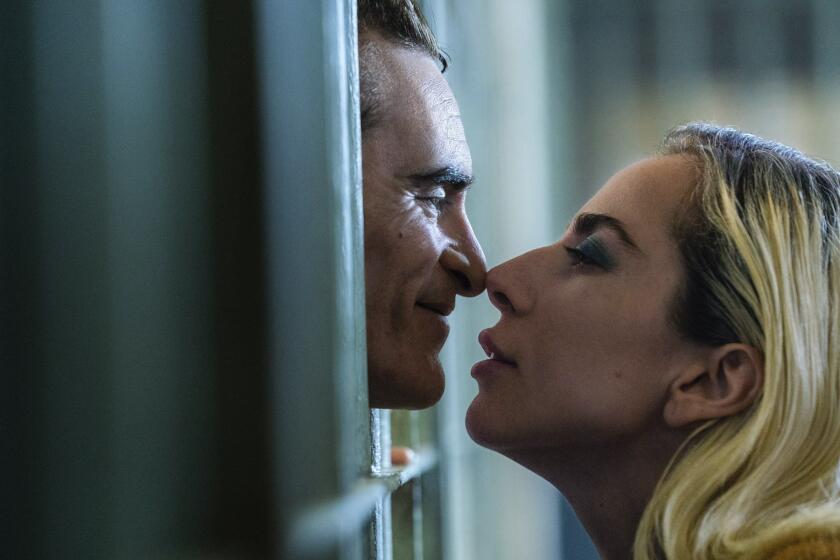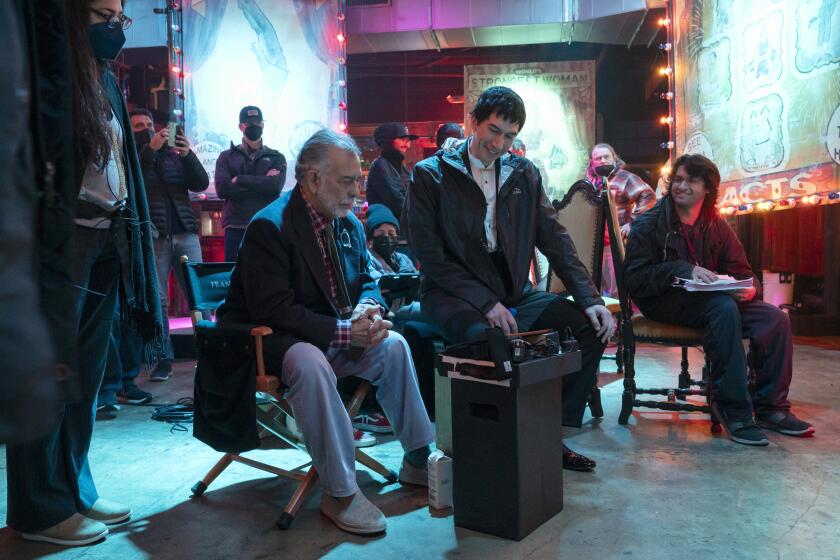Elia Kazan: Can ‘Naming Names’ Be the One Unforgivable Sin?
Blacklisting is an ugly term for an ugly activity. Americans, especially those in show business, came to know it in the mid-century years that we call “McCarthyite.” To blacklist is to keep score on “persons who have incurred suspicion, censure or punishment.”
On one side of a table sat Sen. Joseph R. McCarthy and his kind. On the other, the accused. In the case of Hollywood between 1947-55, it was usually the House Un-American Activities Committee at the accusers’ table. On the other side were those suspected of being or having been communists during the prewar and early Cold War years. The old Soviet ally had become the new enemy and communism was the blight. Many Hollywood suspects were censured or punished, usually not through imprisonment and never to the point of death. But careers were altered as the accused went into exile, while others were severely limited or effectively ended.
People who remember the sufferers have kept score for a half century on those who, under congressional questioning, named names of old friends and colleagues who had chosen the cover of continuous secrecy. Some had favored Soviet communism because they were idealists; others because they were ideologues or simply fools. In the 1930s, during the Depression, many dreamers and plotters thought communism was the answer and wanted to help it along. Even after Josef Stalin’s terrible purges in the late ‘30s and his pact with the Nazis in 1939, many, though stunned, stayed on, temporarily sheltered by the fact that the Soviet Union was our ally in World War II. But they stayed on too long. The McCarthyites and HUAC, creating and taking advantage of a new climate of suspicion, even paranoia, wanted to flush them out.
To name names is always a morally complicated act, whether for whistle-blowers when corporate America sins; or when the destiny of a nation is at stake, or when, as in the film “On the Waterfront,” a courageous longshoreman, played by Marlon Brando, tattles on corrupt “scab union” bosses. That film was directed by Elia Kazan, who, on April 10, 1952, joined the ranks of 58 Hollywoodites who identified others they thought or knew to have been in the red camp.
Which brings us to the Kazan of today. Now 87, he made news this month. For, once again, jurors of the American Film Institute and the Los Angeles Film Critics Assn. denied him a life-achievement award that, everyone agrees, his filmmaking long ago and many times over should have earned him, thus retaking vengeance for his 1952 testimony. These jurors are the self-appointed keepers of the long memory, the sharpeners of knives to use on anyone who, in the language of the playground and of strikers, they see as a “squealer,” “snitch,” “stool pigeon,” “scab” or “rat.”
In the eyes of many, the jurors have a point. They know that, as older generations die off, not many can picture the ominous sneer of McCarthy or imagine the threatening climate created by the righteous pursuers on HUAC. As veteran suspects die or memories fade, the heirs of the named ones take pains to put salt in old wounds in the film-making community. They make their case by naming the act of squealing Hollywood’s most dangerous iniquity, and squealers, however artistically notable, the one group of the never-to-be-forgotten or forgiven.
Kazan being the best known and most artistically worthy in this unforgiven and always remembered community, he gives them a chance to be righteous each year. “Lest we forget,” they say in effect, “we must pointedly pass over Kazan.”
Kazan does not need this award. He has been honored for his stage successes and screen triumphs, reaping awards abroad and at home, even from others in Hollywood--he has won two Oscars. The AFI does not need to give him the honor--others stand credibly in line for recognition each year. But this annual ritual of passing-over does give occasion to those of us who never faced a congressional committee at a time of terror, and were never tempted, by left or right, to take stock of the when and how and how long of mental record-keeping and punishing.
A society has to move on, and this one always has. Its old oppressors can repent, pay reparations and start anew--even when there was not always clear repentance. Did the heirs of every slaveholder say for their ancestors, “I’m sorry”--even when all agree they should have? Did all segregationists, for themselves, say the same to the once-segregated? Most ex-Confederates, after 1865, did anything but profess regret for their having seceded and started a costly war. Yet, in response to Abraham Lincoln’s call, they and the Union victors participated in the binding up of wounds, “with malice toward none.” Should such moving on occur now in respect to the victims and perpetrators of naming of names?
If there is value in turning a page, as some think there is in this case, people have several options open, several needs to be faced. First would be for critics of the Hollywood panels to withhold their own name-calling and not see all the anti-Kazan activity as the simple result of Hollywood-leftist “political correctness.” This may be present, but we have to take at their word the concerns of those who fear the return of blacklisting in America.
The second thing on the agenda might be to forgive--as in Shakespeare’s familiar “forgive and forget” strategy. That won’t work in Kazan’s case, because forgiveness prerequires repentance--and Kazan is notably unrepentant. Yes, he confessed long ago, there had been some saving of his own neck in his response to the committee. But just as credibly, he saw his act as a testimony to his rejection of the communist “god that failed.” It was a judgment call--one that saw the uprooting of the remaining traces of communist influence in filmdom to be a morally valid, one might call it patriotic, act. Two sets of loyalties clashed--and Kazan and his kind betrayed friends rather than country.
Not all did name names. In World War II days, the novelist E.M. Forster posed an issue: “If I had to choose between betraying my country and betraying my friend, I hope I should have the guts to betray my country.” Forty-five years after Kazan testified, it is hard to recreate the atmosphere in which he and others chose to make the opposite decision.
If one cannot forgive those who refuse to admit to error or sin, should one forget? The Marshall Plan after World War II demonstrates values in choosing not to remember everything. Many ex-GI’s, aware of atrocities by the Japanese, years later have done business in Japan and found pleasure in friendship with some Japanese veterans. Political warriors aggrieve each other in vicious congressional battles but, in a healthy republics, later come together for drinks.
Mere forgetting would not do; we would then not take moral choices seriously. Nor is destructive forgetting anything but a sign of neglect and insensitivity. There is, however, what could be called “creative forgetting.”
Precedent for such forgetting goes back a long way in this society, which cherishes the notion of a biblical grounding. The God of the scriptures sets a precedent by being able to engage in forgetting. The repentance of the people never matches the level of their offense, but Jeremiah’s Lord still says of their wrongdoing: “I shall call [it] to mind no more.”
The Genesis stories include many creative forgetters. Esau once had good reasons to kill his brother Jacob--he could not have put the offenses of years before out of mind--but he “forgot’ those offenses, as mother Rebecca hoped he would after things had “died down.” The same people who were never to “forget Jerusalem” also had new agendas that included remembering to move on and heal. The Psalms are full of prayers to God to “remember not.”
Scholem Asch begins his novel “The Nazarene” with: “Not the power to remember, but its very opposite, the power to forget, is a necessary condition of our existence.”
And should we make special rules for judging genius, especially in the arts? Great artists are seldom orthodox--in politics, religion or conduct. Lesser artists serve causes, turn out propaganda in the name of art, and the least artists are merely bland conformists. Something that burns in the soul of the artist leaves behind ashes in the biography but splendor in the product. No woman would make a moral exemplar of Degas, Picasso or Rodin, but who would condemn their achievement? Some creators have abused the bodies and confidence of others, but their art takes on a life of its own, and we choose not to keep moral score on them in order to receive the blessings of their art. Kazan’s has blessed us.
How can society today keep to moral standards and continue to act on principle as we move on? Nicholas Rescher philosophizes about Gen. Robert E. Lee, who appeared before a U.S. congressional committee soon after the Civil War. Lee was asked, did the former Confederates now agree with the United States government? Lee replied, they “entirely acquiesce in the government.”
“Acquiescence,” says Rescher, is neither agreeing nor compromising; one can also say it is not even simply forgetting. Rather, it is a way of moving on, healing, putting higher priorities on things other than our grudges, bruises and score-keeping. Of course, for the Hollywood jurors to do that next year would be a judgment call. Kazan knows all about such calls, and his perplexing situation still instructs the rest of us.
More to Read
Only good movies
Get the Indie Focus newsletter, Mark Olsen's weekly guide to the world of cinema.
You may occasionally receive promotional content from the Los Angeles Times.










